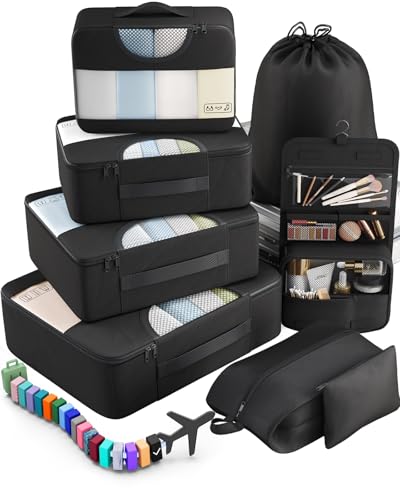In Latakia, they use Type C, E, and L power plugs and outlets. The voltage is 220V, and the frequency is 50Hz.
So, you’ll need a travel adapter in Latakia. Their plugs and outlets are different from the Type A and B ones we use back in the States.
Quick Overview of the Plugs in Latakia:
- Plug type in Latakia: C, E, and L
- Standard voltage: 220V
- Frequency: 50Hz
- Need a travel adapter? Yes, you do need a travel adapter
- Need a voltage converter? Your device’s label tells the story
- Recommended plug adapter: Vintar Universal Travel Adapter Kit
This information is gathered from local electricity agencies, IEC standards, and the experiences of travelers who’ve used these outlets abroad.
The Only Travel Adapter You’ll Need in Latakia
A bad travel adapter can ruin your trip. We don’t sell them, but we’ve researched the best one for Latakia—checking voltage, outlet types, speed, and safety. This one gets top marks:
Recommended Travel Plug Adapter
by 1,000+ travelers on Amazon
No power adapter and already abroad? You’ll likely be able to grab one at the airport or a shop nearby. Still, having your own from the start gives you more control and saves you the hassle of tracking one down after a long flight.
Latakia travelers often explore Lebanon, Iraq, or Jordan. Check which plugs are needed before your trip.
Power Outlets in Latakia
In Latakia, they use Type C, E, and L power plugs and outlets.
Type C

Type C outlets have two round prongs and no grounding pin. Type E and F plugs usually fit too, but grounded plugs will need an adapter.
Type E

Type E outlets have two round prongs and a grounding pin at the top. Type C and F plugs will also fit.
Type L

Type L outlets have three round prongs in a straight line and support different power ratings. Some Type C plugs may also fit.
Do You Need a Voltage Converter?
Your electronics must match the voltage of the country you’re visiting, and in Latakia, the voltage is different from the 120V we use in the U.S. That means you’ll probably need a converter.
Always check the power label on your device before using it abroad. If it lists “100-240V, 50/60 Hz”, your device is dual voltage and works with both 120V and 220-240V power sources without a converter. This applies to laptops, tablets, smartphones, cameras, and rechargeable toothbrushes.

Which Travel Devices May Need a Converter?
Play it safe with your electronics — browse the most trusted voltage converters here.
| Device | Need Converter? | Notes |
|---|---|---|
| Phone | ❌ No (usually) | Most modern phone chargers are dual voltage (100–240V) |
| Laptop | ❌ No (usually) | Check the power brick label for 100–240V |
| Hairdryer | ✅ Yes (often) | High wattage; many models are not dual voltage |
| Electric toothbrush | ⚠️ Check voltage | Some models are 110V only |
| Camera / DSLR | ❌ No (usually) | Most chargers are dual voltage |
| Power bank | ❌ No | Charges via USB, adapter is enough |
| Electric shaver / trimmer | ⚠️ Check voltage | Older or cheaper models may not support 230V |
| Tablet / iPad | ❌ No | All models are dual voltage |
| Portable fan | ✅ Yes (sometimes) | Many models are not compatible with 230V |
| Game console | ⚠️ Check voltage | Newer consoles like PS5 and Xbox are often dual voltage — check to be sure |
| Bluetooth speaker | ❌ No (usually) | Charges via USB |
| E-reader (Kindle, etc.) | ❌ No | USB charging only, no converter needed |
Top Travel Essentials to Pack
Adapters are step one—these items are step two. Simple, useful, and often overlooked, they’re a smart addition to any trip.
Digital Luggage Scale
Packing Cubes
Power Bank
More About Latakia
Latakia is the main port city on Syria’s Mediterranean coast, known for its warm sea breeze and laid-back local feel. It’s a working harbor where fishing boats come and go, and locals stroll along palm-lined promenades in the evenings. You can feel the Mediterranean in the air—seafood restaurants and cafes spill out onto the sidewalks.
It’s less covered in travel guides than Damascus or Aleppo, but that’s part of Latakia’s charm. You’ll find a mix of beachside resorts, broader boulevards, and smaller sites like the nearby archaeological ruins of Ugarit. It’s a more relaxed glimpse into everyday Syrian life, where families gather in parks and kids play by the seafront.
Given the broader situation in Syria, travel here still carries real risk. Security conditions can shift fast, and most western governments advise against visiting. But for those with strong local connections and thorough planning, Latakia offers a coastal slice of Syria you won’t find elsewhere.
Latakia uses the same plugs and outlets as the rest of Syria.




